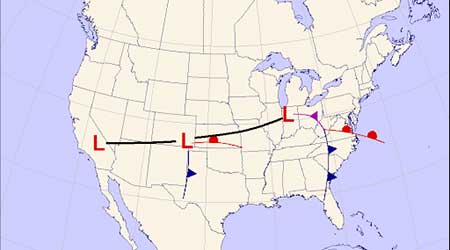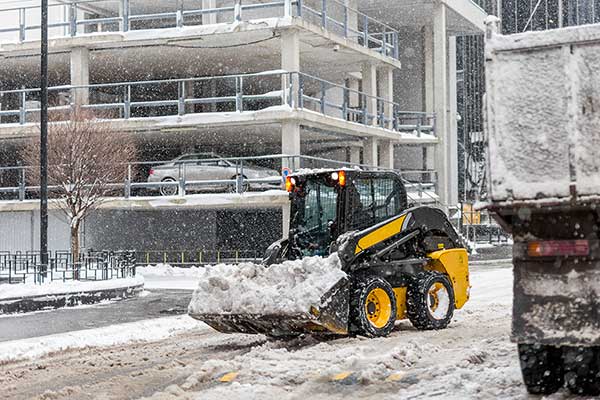The Art of Forecasting Winter Storms in Denver
Denver, Colorado – known for its beautiful landscapes and outdoor activities, experiences its fair share of winter storms. These storms can bring heavy snowfall and create challenging conditions for residents and businesses alike. To ensure the safety and accessibility of roads, parking lots, and sidewalks during these winter storms, it is crucial to have a well-planned commercial snow removal strategy in place.
This article explores the art of forecasting storms and planning commercial snow removal teams in Colorado.

Understanding Winter Weather Patterns in Denver
Denver’s unique location at the foot of the Rocky Mountains means it often experiences rapidly changing and weather conditions. This variability can make winter forecasting a complex task. However, meteorologists and weather experts use advanced technology and historic data to provide accurate forecasts.
- Monitoring Weather Systems: Weather forecasting agencies closely monitor incoming weather systems, tracking low-pressure systems that bring precipitation. In Denver, snowstorms are often associated with these systems, making it possible to predict their arrival.
- Temperature and Moisture: Understanding temperature and moisture levels is crucial. When cold air masses from the north collide with moist air from the Pacific, it can result in significant snowfall. Forecasters analyze these conditions to predict snow accumulations.
- Local Factors: Denver’s elevation, which is around 5,280 feet above sea level, can significantly impact snowfall patterns. Higher elevations in the surrounding areas often receive more snow than the city itself.
Planning Commercial Snow Removal Teams

Once a winter storm is forecasted by weather experts and the advanced tracking technology, commercial snow removal teams in Denver must be prepared to act swiftly.
Here are key considerations when planning to clear a property efforts:
- Preparedness: Snow removal companies must have a well-maintained fleet of snowplows, snow blowers, and salt spreaders ready for deployment. Adequate supplies of salt and sand should be on hand to improve traction on icy surfaces.
- 24/7 Availability: Storms don’t adhere to a 9-to-5 schedule, so snow removal teams must be available around the clock. Quick response times are essential to ensure public safety and minimize disruptions.
- Prioritization: Prioritizing snow removal is vital. Major roads, highways, and emergency routes should be cleared first, followed by residential areas and parking lots. Efficient allocation of resources is key to effective snow removal.
- Safety Protocols: Snow removal teams must follow safety protocols to prevent accidents and injuries. This includes adequate training for operators and the use of proper safety equipment.
- Communication: Effective communication with clients, such as property managers and business owners, is essential. Clear communication ensures that snow removal efforts align with the specific needs and expectations of each client.
In Denver where winter storms can bring heavy snowfall and icy conditions, accurate storm forecasting and efficient commercial snow removal are essential for public safety and business continuity.
With meteorological tools and proper planning it enables commercial snow removal teams to respond effectively to winter weather challenges, ensuring that residents can navigate the city safely and that businesses can operate without disruption.
By understanding the science of forecasting storms and implementing well-prepared snow removal strategies, Denver remains a vibrant and accessible city throughout the ALL winter months, regardless of the storm.
